
Professor Mark Richardson BMBCh, PhD, FRCP
Head of School (Neuroscience)
- Paul Getty III Professor of Epilepsy
Research interests
- Neuroscience
Contact details
Biography
Mark Richardson is Paul Getty III Professor of Epilepsy and Head of School of Neuroscience at the Institute of Psychiatry, Psychology & Neuroscience at King's College London.
Mark's 'ab studies individuals with epilepsy, focusing on one broad question: why do epileptic seizures start?
In collaboration with mathematicians and engineers, we construct models of the human brain using a range of imaging and neurophysiological techniques, such as functional magnetic resonance imaging (fMRI), diffusion tensor imaging (DTI), electroencephalography (EEG), simultaneous EEG-fMRI and simultaneous transcranial magnetic stimulation (TMS)-EEG.
He aims to understand the underlying mechanisms of seizure onset in terms of such models, comparing healthy people with people who have epilepsy. We also examine how antiepileptic drugs alter brain networks.
In addition, his labs is investigating the long-timescale mechanisms of epilepsy, through long-term monitoring of physiological parameters in people with epilepsy, using wearable and implantable sensors. They will use these data to understand why seizures occur at particular times and to forecast seizure onset in real time.
Find out more about my research
Key Publications
- Tangwiriyasakul et al., 2018. Dynamic brain network states in human generalised spike-wave discharges. Brain.
- Kuhlmann et al., 2018. Seizure prediction: ready for a new era. Nature Reviews Neurology.
- Terry et al., 2012. Seizure generation: The role of nodes and networks. Epilepsia.
Key Collaborators
- Dr Marc Goodfellow, University of Exeter
- Professor Dr Andreas Schulze-Bonhage, University of Freibrug
- Dr Ben Brinkmann, Mayo Clinic, Rochester
- Dr Dean Freestone, Seer Medical, Melbourne
Research

King's Epilepsy Research Collective (KERC)
The King’s Epilepsy Research Collective (KERC) provides a platform for researchers from all of King’s faculties to meet and discuss research and to support collaborative activities.
News
Third annual Demystifying Impact event explores entrepreneurial mindset
Staff and students gathered to hear about innovative approaches to ensuring research findings have impact in the real world through creating start up and spin...

Under-the-skin electrode allows for real-world epilepsy tracking
New research has found that an electronic device placed under the scalp is an effective and feasible means of accurately tracking epilepsy.

Professor Clemens Kiecker delivers inaugural lecture "From lab to lecture hall - a neuroscience journey"
On 24 April 2025, Professor Kiecker gave his inaugural lecture as a Professor in Neuroscience Education at the Institute of Psychiatry, Psychology &...
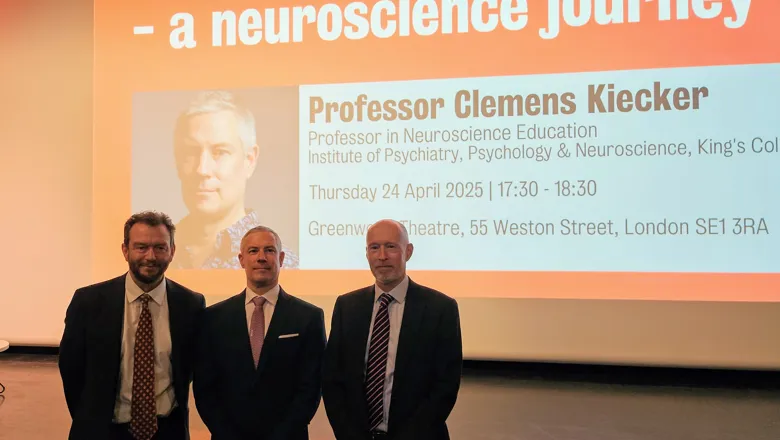
Using AI and data analysis to tackle drug-resistant epilepsy
Swansea University and King's College secure £1.1 million funding from Medical Research Council

King's researchers receive further funding to advance AI predictions for drug-resistant epilepsy
The Epilepsy Research Institute and Angelini Pharma extended Professor Mark Richardson's project to include 4,774 additional patient records
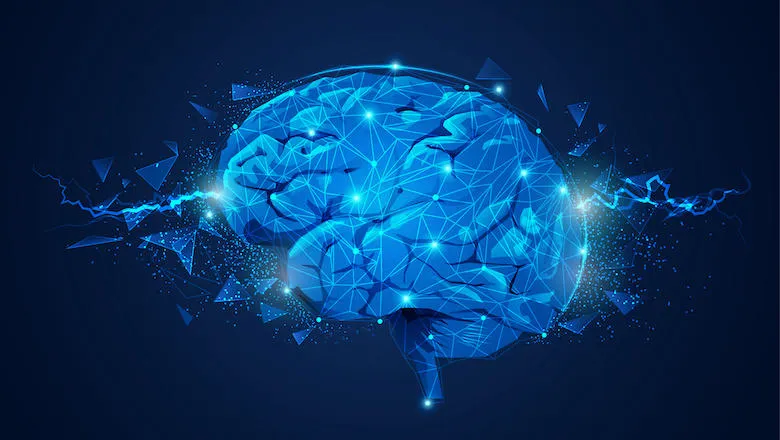
Professor Deepak Srivastava delivers inaugural lecture "Synapse Confidential - Understanding the Secrets of Neuronal Connections in Health and Mental Health"
On 18 June 2024, Professor Srivastava delivered his inaugural lecture as a Professor of Molecular Neuroscience at the IoPPN.
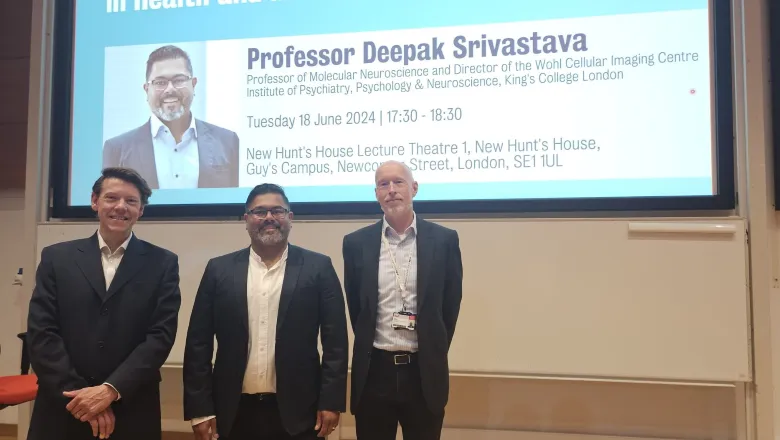
Professor Mark Richardson Co-Leads New Theme at The Epilepsy Research Institute
The theme Enabling Technologies looks into the prediction and prevention of seizures in epilepsy
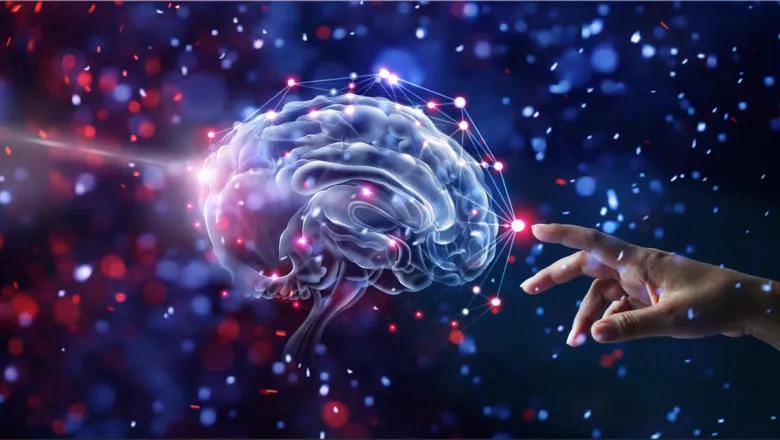
King's College Hospital Chief Officers Visit Maurice Wohl Clinical Neuroscience Institute
Professor Clive Kay and Dr Leonie Penna met with School of Neuroscience researchers to learn about clinical and academic partnerships.
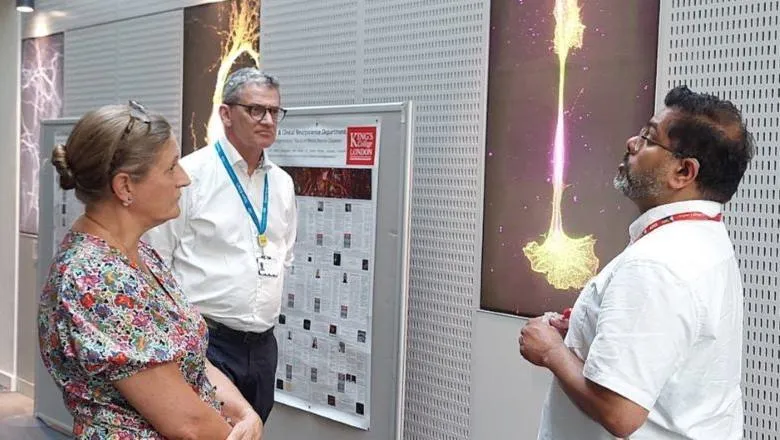
Researchers secure funding to study how 'game-changing' technology can improve epilepsy treatment and care
£1.8 Million National Institute for Health & Care Research (NIHR) grant awarded to study how the first ever ultra-long term seizure recorder could help...

Features
Celebrating Neuroscience Research this Brain Awareness Week
This year, Brain Awareness Week was held from 14 to 22 March 2022. Brain Awareness Week is the global campaign to foster public enthusiasm and support for...

From modelling brain activity to modelling the impacts of COVID-19
A theoretical neurobiologist from King’s College London has applied her skills in analysing brain data to modelling how the COVID-19 pandemic will develop in...
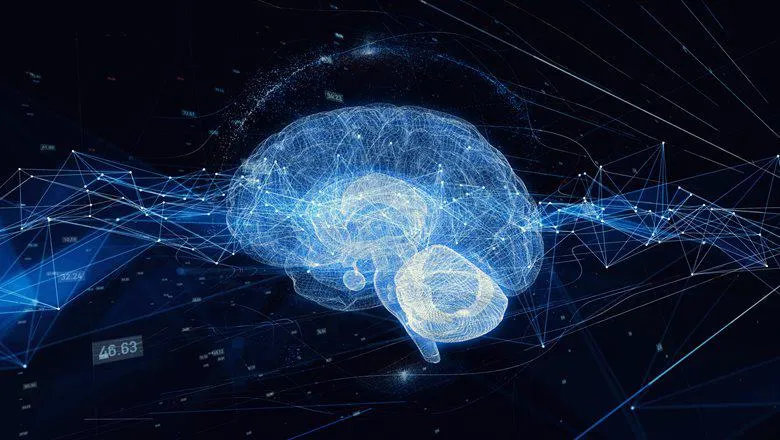
Research

King's Epilepsy Research Collective (KERC)
The King’s Epilepsy Research Collective (KERC) provides a platform for researchers from all of King’s faculties to meet and discuss research and to support collaborative activities.
News
Third annual Demystifying Impact event explores entrepreneurial mindset
Staff and students gathered to hear about innovative approaches to ensuring research findings have impact in the real world through creating start up and spin...

Under-the-skin electrode allows for real-world epilepsy tracking
New research has found that an electronic device placed under the scalp is an effective and feasible means of accurately tracking epilepsy.

Professor Clemens Kiecker delivers inaugural lecture "From lab to lecture hall - a neuroscience journey"
On 24 April 2025, Professor Kiecker gave his inaugural lecture as a Professor in Neuroscience Education at the Institute of Psychiatry, Psychology &...

Using AI and data analysis to tackle drug-resistant epilepsy
Swansea University and King's College secure £1.1 million funding from Medical Research Council

King's researchers receive further funding to advance AI predictions for drug-resistant epilepsy
The Epilepsy Research Institute and Angelini Pharma extended Professor Mark Richardson's project to include 4,774 additional patient records

Professor Deepak Srivastava delivers inaugural lecture "Synapse Confidential - Understanding the Secrets of Neuronal Connections in Health and Mental Health"
On 18 June 2024, Professor Srivastava delivered his inaugural lecture as a Professor of Molecular Neuroscience at the IoPPN.

Professor Mark Richardson Co-Leads New Theme at The Epilepsy Research Institute
The theme Enabling Technologies looks into the prediction and prevention of seizures in epilepsy

King's College Hospital Chief Officers Visit Maurice Wohl Clinical Neuroscience Institute
Professor Clive Kay and Dr Leonie Penna met with School of Neuroscience researchers to learn about clinical and academic partnerships.

Researchers secure funding to study how 'game-changing' technology can improve epilepsy treatment and care
£1.8 Million National Institute for Health & Care Research (NIHR) grant awarded to study how the first ever ultra-long term seizure recorder could help...

Features
Celebrating Neuroscience Research this Brain Awareness Week
This year, Brain Awareness Week was held from 14 to 22 March 2022. Brain Awareness Week is the global campaign to foster public enthusiasm and support for...

From modelling brain activity to modelling the impacts of COVID-19
A theoretical neurobiologist from King’s College London has applied her skills in analysing brain data to modelling how the COVID-19 pandemic will develop in...

